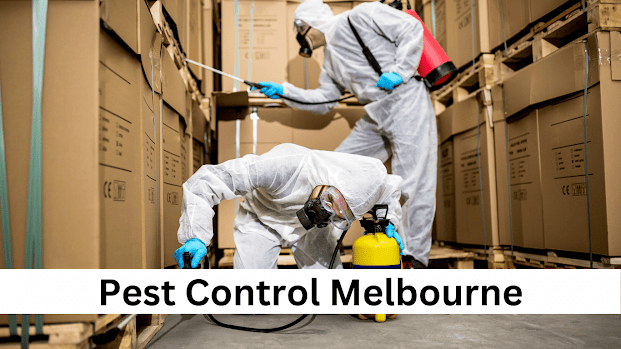How is Climate Change Affecting Pest Control?
Climate change is not just altering our weather patterns and ecosystems; it's also having a profound impact on pest control Melbourne strategies. As temperatures rise, precipitation patterns change and habitats transform, pests adapt and thrive in new environments. This article delves into the intricate relationship between climate change and pest control, exploring the challenges experts and homeowners face. From the resurgence of certain pests to the evolution of control methods, let's unravel the complexities of this pressing issue.
The Warming Planet and Proliferation of Pests
One undeniable consequence of climate change is the warming of our planet. As temperatures soar, pests once limited to specific regions find new habitats that are now conducive to their survival. Invasive species, such as certain types of mosquitoes and ticks, are expanding their territories, posing a threat to public health. Understanding these shifts is crucial for devising effective pest management strategies.
Altered Precipitation Patterns and Pest Behavior
Changes in precipitation patterns are equally significant contributors to the pest control challenge. Some pests thrive in moist environments, while others prefer dry conditions. With climate change causing erratic rainfall and droughts in various regions, the behavior of pests is becoming increasingly unpredictable. Adaptable pests, like rodents and certain insects, exploit these fluctuations, making traditional control methods less effective.
Crop Pests and Agricultural Impacts
Agriculture, a sector highly vulnerable to climate change, faces escalating challenges in pest management. Crop pests, such as aphids and caterpillars, are becoming more resilient and difficult to control. Farmers are witnessing a surge in pest-related losses, impacting food production. The necessity for innovative and sustainable pest control measures in agriculture has never been more critical.
Rising Seas and Urban Pest Infestations
Coastal areas experiencing rising sea levels due to climate change face unique pest challenges. Increased humidity and saltwater intrusion create favorable conditions for pests like termites and ants to thrive in urban environments. As homes and structures are threatened by these pests, the need for resilient pest control strategies becomes paramount.
Evolution of Pest Control Methods in the Face of Climate Change
Adapting to the changing pest landscape requires a reevaluation of traditional pest control methods. Integrated Pest Management (IPM) approaches are gaining prominence, emphasizing a holistic strategy that combines biological, cultural, and chemical control methods. Environmentally friendly pesticides are also emerging, minimizing the ecological impact of pest control measures.
The Human Impact: Health Risks and Economic Consequences
Beyond agricultural and environmental concerns, the impact of climate change on pest control extends to human health and economic well-being. The spread of diseases carried by pests, such as West Nile virus and Lyme disease, poses significant health risks. Additionally, the economic burden of pest-related damage and control efforts is escalating, necessitating proactive and sustainable solutions.
The Role of Individuals in Climate-Resilient Pest Control
While experts work on large-scale solutions, individuals can play a crucial role in climate-resilient pest control. Simple measures like proper waste disposal, maintaining a clean environment, and using eco-friendly pest control products contribute to minimizing the impact of pests. Education and awareness about the link between climate change and pest dynamics empower communities to take proactive steps.
The Path Forward: Collaborative Efforts and Innovation
In conclusion, the intertwining of climate change and possum removal Reservoir requires collaborative efforts and innovative solutions. As pests evolve and adapt to a changing climate, so must our strategies for managing them. By fostering a deeper understanding of this complex relationship and embracing sustainable practices, we can mitigate the impact of pests in the era of climate change.
In a world where climate resilience is key, addressing the implications of climate change on pest control is not just a necessity but an opportunity to build a more sustainable and harmonious coexistence with the environment.


Comments
Post a Comment